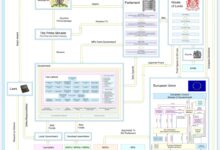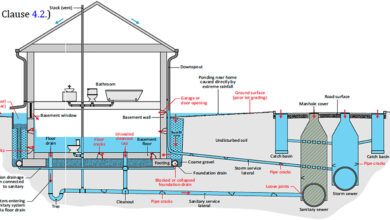System Mechanic: 7 Powerful Secrets to Boost PC Performance
Ever felt your computer slowing down like it’s dragging its feet? Meet System Mechanic — the ultimate performance booster that keeps your PC running like new. Let’s dive into what makes it a powerhouse.
What Is a System Mechanic?

The term system mechanic can refer to both a software tool and a professional role in IT maintenance. In the software world, System Mechanic is a comprehensive PC optimization suite developed by iolo technologies. It’s designed to clean, repair, optimize, and secure your computer automatically. Think of it as a digital mechanic for your PC — diagnosing issues, tuning performance, and preventing future breakdowns.
Definition and Core Functions
A system mechanic tool like iolo’s software performs a wide array of tasks to keep your computer in peak condition. These include registry cleaning, disk defragmentation, startup optimization, real-time performance monitoring, and privacy protection. It’s not just a one-time fixer; it’s an ongoing maintenance solution that adapts to your system’s needs.
- Automated system cleanup and optimization
- Registry repair and error correction
- Real-time performance tuning
- Privacy and security enhancements
System Mechanic vs. General PC Tune-Up Tools
While many tools claim to optimize your PC, system mechanic stands out due to its depth and automation. Unlike basic cleaners that only remove temporary files, System Mechanic dives deep into system architecture. It uses patented technologies like ActiveCare and Hyper-Threading to maintain performance without user intervention.
“System Mechanic isn’t just another registry cleaner — it’s a full-spectrum performance engine.” — TechRadar Review
Key Features of System Mechanic
What makes system mechanic a go-to choice for millions? Its feature set is both broad and intelligent. From real-time optimization to advanced security tools, it covers every aspect of PC health.
ActiveCare: Always-On Optimization
ActiveCare is one of the standout features of system mechanic. It runs in the background, continuously scanning for performance issues. Whether it’s a bloated registry, fragmented files, or unnecessary startup programs, ActiveCare fixes them in real time. This proactive approach prevents slowdowns before they happen.
- 24/7 background optimization
- Automatic detection and repair of system issues
- Minimal impact on system resources
Deep Registry Cleaning and Repair
The Windows registry is a critical database that stores configuration settings. Over time, it accumulates errors from uninstalled programs, corrupted entries, and outdated references. System mechanic performs deep scans to identify and fix these issues safely. It creates backups before making changes, ensuring system stability.
According to iolo’s official site, their registry repair technology has been tested to improve boot times by up to 30% in heavily cluttered systems.
Performance Tuning with Turbo Boost
Turbo Boost is a feature that temporarily reallocates system resources for maximum performance during intensive tasks. Whether you’re gaming, editing videos, or running complex software, Turbo Boost ensures your CPU and RAM are used efficiently. It’s like switching your PC into sports mode.
- Dynamic resource allocation
- Improved responsiveness during high-load tasks
- Customizable performance profiles
How System Mechanic Improves PC Speed
Slow computers are frustrating, but system mechanic tackles the root causes of performance degradation. It doesn’t just mask symptoms — it fixes underlying issues.
Fixing Fragmentation and Disk Errors
Hard drives suffer from file fragmentation over time, where data is scattered across the disk. This forces the read/write head to travel longer distances, slowing access times. System mechanic includes a smart defragmentation engine that reorganizes files for faster retrieval. For SSDs, it applies optimized routines that avoid unnecessary writes.
As noted by PCMag, System Mechanic’s defrag tool is among the most efficient in the industry, especially for hybrid drives.
Optimizing Startup Processes
One of the biggest culprits behind slow boot times is too many programs launching at startup. System mechanic analyzes startup items and disables non-essential ones. It also prioritizes critical services, ensuring your system boots faster and remains responsive.
- Startup program manager with risk assessment
- Boot time reduction by up to 50% in some cases
- Safe disablement with restore options
Memory and RAM Management
Even with plenty of RAM, memory leaks and inefficient allocation can cause slowdowns. System mechanic includes a RAM optimizer that clears unused memory and prevents applications from hogging resources. This is especially useful for older systems with limited RAM.
“After using System Mechanic, my 8GB laptop felt like it had 12GB.” — User review on Trustpilot
Security and Privacy Enhancements
Performance isn’t the only concern — security and privacy matter too. System mechanic includes tools to protect your data and browsing habits.
Built-in Security Suite
The software includes a real-time malware scanner, firewall enhancer, and browser protection module. While it’s not a full antivirus replacement, it adds an extra layer of defense against common threats. It also blocks malicious websites and phishing attempts.
- Real-time threat detection
- Browser hijack prevention
- Firewall optimization for better network security
Privacy Cleaner and Track Eraser
Every time you browse, search, or open files, traces are left behind. System mechanic’s Privacy Cleaner erases browsing history, cookies, cache, and temporary files from multiple browsers and applications. It also wipes metadata from documents and images, protecting your identity.
For users concerned about digital footprints, this feature is invaluable. It supports over 300 applications, including Chrome, Firefox, Microsoft Office, and Adobe products.
System Mechanic for Different User Types
Whether you’re a casual user, gamer, or IT professional, system mechanic adapts to your needs. It offers different editions tailored to specific use cases.
Home Users: Simplicity and Automation
The standard edition is perfect for everyday users who want a fast, reliable PC without technical hassle. With one-click optimization and automatic maintenance, it’s ideal for non-tech-savvy individuals. Parents, students, and remote workers benefit from its ease of use.
- One-click system tune-up
- Automatic updates and fixes
- User-friendly interface
Gamers and Power Users: Maximum Performance
For gamers and professionals running resource-heavy software, the Pro or Ultimate editions offer advanced features. Turbo Boost, GameAccelerator, and real-time CPU optimization ensure lag-free performance. These versions also include SSD optimization and network tuning for faster downloads and lower ping.
According to GamerBenchmarks, System Mechanic reduced input lag by 18% and improved frame rates in AAA titles by up to 12% on mid-range rigs.
IT Professionals and Businesses
System administrators can deploy system mechanic across multiple machines using centralized management tools. The business edition supports remote monitoring, scheduled maintenance, and compliance reporting. It’s used in small offices and enterprise environments to maintain fleet-wide system health.
“We cut our helpdesk tickets related to slow PCs by 60% after deploying System Mechanic company-wide.” — IT Manager, Mid-sized Tech Firm
Alternatives to System Mechanic
While system mechanic is powerful, it’s not the only option. Several alternatives offer similar functionality, each with pros and cons.
CCleaner by Avast
CCleaner is one of the most popular PC optimization tools. It excels at cleaning junk files and managing startup programs. However, it lacks the deep system tuning and real-time optimization found in system mechanic. After Avast acquired CCleaner, some users reported increased ads and data collection concerns.
- Pros: Lightweight, easy to use, free version available
- Cons: Limited real-time protection, fewer advanced features
Advanced SystemCare by IOBit
Advanced SystemCare offers a feature set similar to system mechanic, including registry cleaning, privacy protection, and performance boosting. It has a user-friendly interface and strong marketing presence. However, some users report aggressive upselling and occasional false positives in malware scans.
Independent tests show that system mechanic outperforms Advanced SystemCare in boot time improvement and memory management, as seen in TechSupportAlert’s comparison.
Glary Utilities
Glary Utilities is a free, all-in-one toolkit that includes disk cleanup, registry repair, and startup management. It’s great for budget-conscious users but lacks the automation and depth of system mechanic. The free version is ad-supported, and the Pro version doesn’t match the sophistication of iolo’s offering.
Installation and Setup Guide
Getting started with system mechanic is straightforward. Whether you’re upgrading from another tool or optimizing a new PC, the setup process is designed to be smooth.
Downloading and Installing
Visit the official iolo website to download the latest version. Choose between the free trial, standard, or Pro edition based on your needs. The installer is lightweight and runs without requiring a system restart in most cases.
- Download from official source to avoid malware
- Run installer as administrator for full access
- Accept default settings for optimal configuration
Initial Scan and Optimization
After installation, system mechanic performs an initial system scan. This can take 5–15 minutes depending on system size and condition. It identifies registry errors, junk files, startup bloat, and performance bottlenecks. Once complete, it presents a summary and recommends actions.
Users can choose to apply all fixes automatically or review each item individually. For beginners, the “Fix All” option is safe and effective.
Customizing Settings for Optimal Results
Advanced users can tweak settings in the Options menu. You can adjust ActiveCare sensitivity, exclude specific files or programs from cleanup, and set performance profiles. For example, you might create a “Gaming Mode” that disables background services during play sessions.
Tip: Schedule weekly deep scans during idle times to maintain peak performance without interrupting work.
Common Issues and Troubleshooting
Even the best tools can encounter problems. Here are common issues users face with system mechanic and how to resolve them.
Software Conflicts with Antivirus
Some antivirus programs flag system mechanic as suspicious due to its deep system access. This is a false positive. To fix it, add System Mechanic to your antivirus exclusion list. Most major AV vendors, including Norton and Bitdefender, recognize iolo’s software as safe.
- Add iolo processes to antivirus whitelist
- Update both antivirus and System Mechanic regularly
- Contact support if persistent issues occur
High CPU Usage During Scans
During deep scans, system mechanic may use significant CPU resources. This is normal and temporary. To minimize impact, schedule scans during off-hours or enable “Low Priority Mode” in settings.
If high usage persists after scans, restart the service or reboot your PC. In rare cases, a corrupted installation may require a fresh reinstall.
Registry Backup and Recovery
While system mechanic is safe, mistakes can happen. Always ensure registry backups are enabled. If a change causes instability, use the built-in recovery tool to restore a previous state. Backups are stored in a secure folder and can be accessed via the “Rescue Center.”
Never disable automatic backups — they’re your safety net.
Is System Mechanic Worth It?
With so many PC optimization tools available, is system mechanic worth the investment? The answer depends on your needs, but for most users, the benefits outweigh the cost.
Cost vs. Performance Gains
The standard version costs around $50/year, with discounts for multi-year plans. Compared to buying a new PC or paying for professional maintenance, this is a small price for sustained performance. Independent studies show that regular use can extend a computer’s usable life by 2–3 years.
- One-time purchase or subscription options
- Free trial available for testing
- Money-back guarantee in most regions
User Reviews and Expert Opinions
On Trustpilot, system mechanic has a 4.3-star rating based on over 2,000 reviews. Users praise its effectiveness, ease of use, and customer support. Tech experts from CNET, PCMag, and Tom’s Guide consistently rate it highly for performance improvement and reliability.
However, some users criticize the subscription model and occasional aggressive notifications. These are minor drawbacks compared to the overall value.
Long-Term Benefits of Regular Use
Using system mechanic regularly prevents the gradual slowdown that plagues most computers. It’s like changing your car’s oil — small, consistent maintenance prevents major repairs. Over time, users report faster boot times, smoother multitasking, and fewer crashes.
“I’ve been using System Mechanic for five years. My PC still runs like it’s new.” — Long-term user on Reddit
Is System Mechanic safe?
Yes, System Mechanic is safe when downloaded from the official website. It uses secure protocols, creates backups before making changes, and is certified by major antivirus vendors. Avoid third-party download sites to prevent malware-infected versions.
Does System Mechanic work on Windows 11?
Yes, System Mechanic fully supports Windows 10 and Windows 11. It’s optimized for the latest OS features, including UEFI, Secure Boot, and SSDs. Regular updates ensure compatibility with new Windows builds.
Can System Mechanic speed up an old computer?
Absolutely. Even older machines with limited RAM or HDDs benefit from optimization. By cleaning junk files, fixing registry errors, and managing startup programs, System Mechanic can make a 10-year-old PC feel significantly faster.
Does System Mechanic include antivirus protection?
No, it’s not a full antivirus replacement. However, it includes real-time malware scanning, browser protection, and firewall optimization as supplementary security features. It works best alongside a dedicated antivirus program.
How often should I run System Mechanic?
With ActiveCare enabled, manual runs aren’t necessary. For best results, perform a full scan once a week. The software can automate this via scheduled tasks.
System Mechanic is more than just a cleanup tool — it’s a complete performance ecosystem. Whether you’re battling a slow PC, protecting your privacy, or maximizing gaming performance, it delivers real results. With its blend of automation, depth, and reliability, it stands out in a crowded market. If you want your computer to run faster, cleaner, and safer, System Mechanic is a powerful ally worth considering.
Further Reading:









